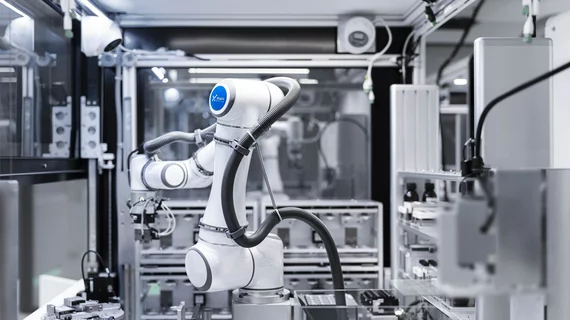Industry Watcher’s Digest
Buzzworthy developments of the past few days.
- Drug discovery company XtalPi (Cambridge, Mass.) is collaborating with pharma giant Eli Lilly on bringing AI and robotics to bear in the search for a therapeutic against a cancer target to be named later. XtalPi says Lilly will invest as much as $250 million to “harness the power of XtalPi’s proven one-stop AI drug discovery solution to deliver a novel compound.” Lilly will use the resulting yield to pursue clinical and commercial development. Details.
- Cloud company Cloudera of Tel Aviv has been tapped by Israel’s largest state-mandated health system. The provider, Clalit Health Services, will use Cloudera’s data platform to remotely monitor patients while running AI-based clinical decision aids and simplifying data sharing between separate Clalit IT systems. Announcement here.
- Healthcare workforce automation startup Dropstat (Los Angeles) has closed a seed funding round good for $5.5 million. The company says it will use the monies to expand its market penetration with products designed to predict staffing needs far in advance and fill shift gaps with staff borrowed, in effect, from other departments and facilities. Details here.
- Care utilization platformer Loyal (Atlanta) is deploying patient-engagement software across 30-hospital, Tennessee-based Ardent Health Services. The company says the install, once completed, will “touch every part of the patient journey in Ardent facilities—from researching care and scheduling appointments to patient registration and post-care communications.”
- South Korean cancer-busting AI supplier Lunit (Seoul) is working with the largest oncology practice in Japan. The latter is the National Cancer Center Hospital East. The pair will use Lunit products to refine diagnostics and treatment plans for patients with colorectal cancer. Announcement.
- Nvidia has unveiled a line of supercomputers equipped with superchips. The super combo is designed to “expand the frontier of AI.” The technology won’t be commercially available till fall or winter, but Big Tech players—including Google, Meta and Microsoft—are already licking their chops. Coverage by Barron’s here.
- Researchers have used AI to detect signs of concussion so subtle that few (or no) imaging specialists could have picked up on them. The study was conducted with MRI experts at New York University, published in The Neuroradiology Journal and covered by Health Imaging.

